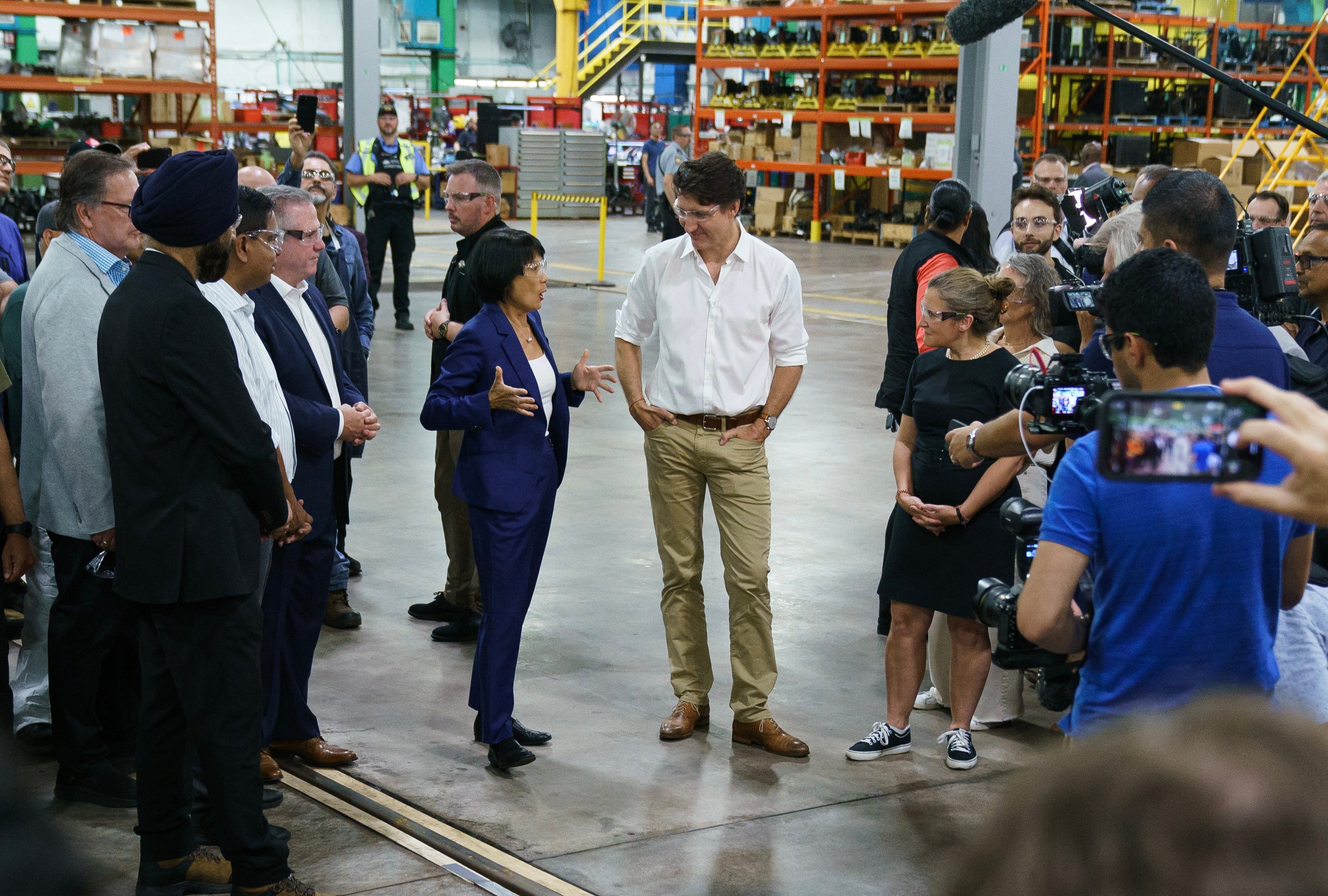Public transit advocates are criticizing a $30-billion plan to improve public transportation unveiled by Prime Minister Justin Trudeau on Wednesday. […] Trudeau called the investment the “largest public transit investment in Canadian history.” But for Nate Wallace, Environmental Defence’s clean transportation program manager, the announcement misses the mark almost entirely.
The Canada Public Transit Fund will invest approximately $3 billion per year, over 10 years, in public transit by providing “baseline funding” that can be used to upgrade and replace things like buses and trains, as well as specific project-based funding for things like electrification and transportation in Indigenous communities. The money won’t start flowing until 2026 –– after the next federal election. None of it is going to cover day-to-day operations, which observers note is the major gap transit systems are dealing with right now. [bold is mine]
Transit is expensive to operate, and in the pandemic years, municipalities were stretched thin as workers stayed home, exacerbating a ridership crisis years in the making. Cities began hiking fares and cutting service to make up for budget shortfalls, which saved money in the short term but discouraged use.
Due to these year-over-year budget shortfalls, totalling over $1 billion since the pandemic began, the TTC is now facing a potential “death spiral” of declining revenues and ensuing service cuts, according to The Globe and Mail. In Vancouver, TransLink expects a funding gap of $600 million in 2026, while Montreal’s transit authority, the Société de transport de Montréal (STM), anticipates a budget shortfall of $560 million next year, growing to nearly $700 million by 2028.
“It feels like this program is being announced in a separate universe. A universe where transit systems aren’t facing massive operating deficits,” Wallace said. “Transit systems can’t plan for the future if they’re struggling to figure out how to keep the lights on today.”
That’s because none of the expenditure will actually happen if Trudeau loses the election.
Trudeau is amazingly prone to these empty election promises to try and motivate voters but he has a terrible record for following through.
Look, public transit is a public service. We really need to change the messaging around how it’s funded and stop expecting it to be profitable. Public transit (just like fucking roads) cost us money but having them benefits us all (and roads provide significantly less value than public transit).
If we want to have a token charge to discourage folks from just constantly riding it that’s a reasonable discussion. It’s unreasonable to expect it to be profitable.
The money won’t start flowing until 2026 –– after the next federal election. None of it is going to cover day-to-day operations, which observers note is the major gap transit systems are dealing with right now.
It’s pretty much the same the Housing strategy, really just sets up a timeline where it looks like a political maneuver to get the Conservatives to retract of this spending that would make people lives better while not doing much while they have the power to do so.
And it’s marketing without any real policy or governance or relevance to real people and issues. The world will crumble more the longer this style of politics remains the norm
There’s a lot of dialogue about how the Liberal could salvage the upcoming election but everything I’ve seen looks like they’re just going to take a break and do a round of sitting on corporate boards. Then in 2029 they’ll see what they can get away after people get 4 years of atrocious governing.
The funny difference though is that Trudeau making statements like “We won’t let the value of housing drop” actually discourage me from voting for him. I am actually a house (well condo owner) but I’d gladly take a 40% value cut if it meant our housing prices stopped being fucking insane.
We need to deflate this sucker before it turns cities into ghost towns.
Profitability of transit is hard to truly measure. Every person on transit is a person not in a car. This reduces overall wear on the roadways and can reduce demand for more lanes/lane widdening projects.
Transit produces leas carbon than cars so we should incentivizing people to use transit. Transit can also reduce the need for parking, provide better access for some disabilities, provide better acccess for people too young or too old to safely drive.
Transit when implemented well can also be used to support denser housing without needing a ton of new 6 lanes roads to service that housing. I think good transit could be a really valuable and important tool in reducing Canada’s emissions from transportation while supporting denser housing to end the housing crisis. It would also provide freedom of mobility to a wider range of people than cars.



